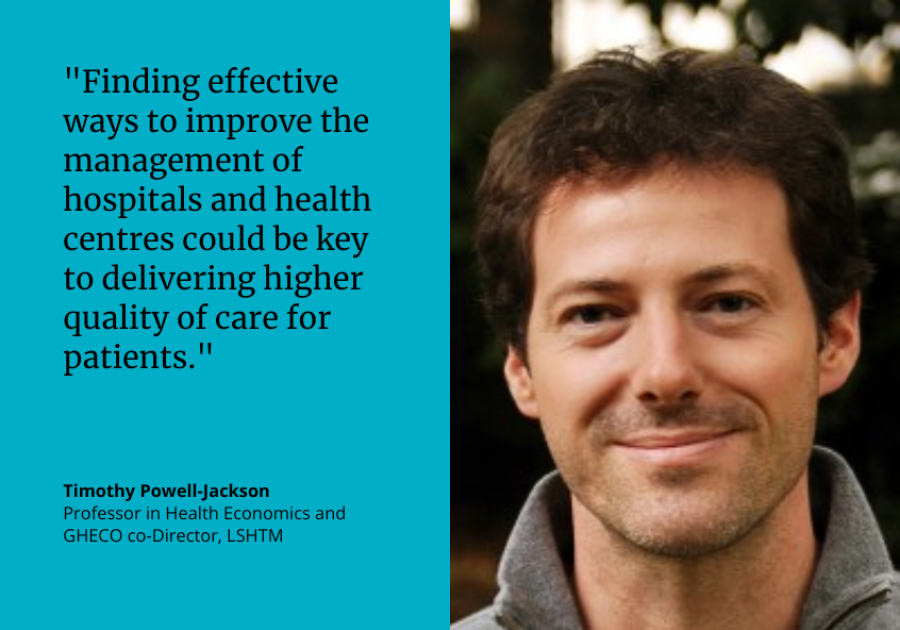
Researchers at the London School of Hygiene & Tropical Medicine and the Ifakara Health Institute, Tanzania have shown that facilities with better management practices are more likely to provide correct treatment, adhere to a checklist of essential questions and examinations and comply with infection prevention and control practices.
While low- and middle-income countries have improved access to healthcare facilities in recent decades, poor quality of care still accounts for between 5.7 and 8.4 million deaths each year.
The study investigated the relationship between management practices and quality of care in over 220 faith-based and for-profit health facilities across Tanzania. While overall there was considerable room for improvement in the management of hospitals and health centres, well managed facilities were more likely to provide better quality of care.
This study builds on previous research in the UK and United States showing that management matters for quality of care. Understanding this relationship in lower-income settings and the challenges in improving management practices will inform future strategies for improving these practices to ensure better quality of care.
Measuring the quality of management is tricky. Researchers developed a novel tool to measure management practices in Tanzania across four key areas: operations, performance monitoring and targets, human resource management and financial management.
People trained to pose as real patients were used to evaluate the quality of clinical care provided at each facility. Correct treatment, adherence to an essential checklist of questions and examinations, provision of unnecessary care and the number of antibiotics prescribed were all measured.
The study then turned to the question of whether management practices can be improved in health facilities by evaluating an internationally-recognised management support intervention. The intervention involved an initial assessment and feedback, quality improvement plans, training and mentoring visits.
There was no sizeable improvement in management as a result of the intervention, showing that supporting health facilities at scale to adopt best-practice ways of working is challenging.
Timothy Powell-Jackson, Professor in Health Economics and GHECO co-Director, said: “Our study highlights the importance of well managed healthcare facilities in delivering good quality of care in low- and middle-income countries. Finding effective ways to improve the management of hospitals and health centres could be key to delivering higher quality care for patients.”
LSHTM's short courses provide opportunities to study specialised topics across a broad range of public and global health fields. From AMR to vaccines, travel medicine to clinical trials, and modelling to malaria, refresh your skills and join one of our short courses today.
